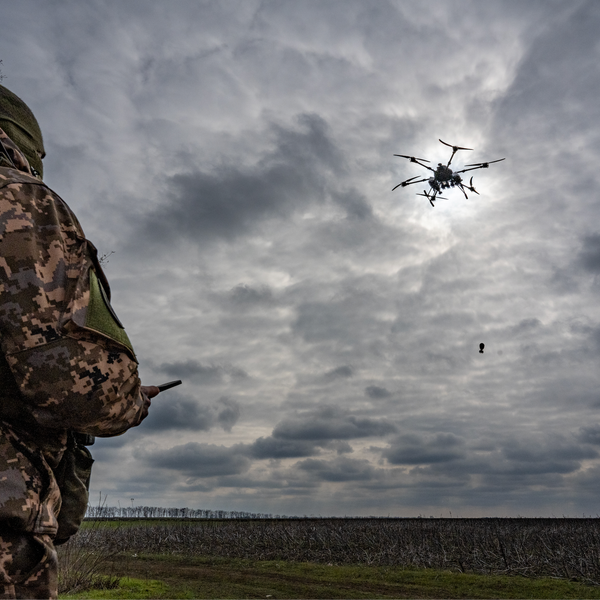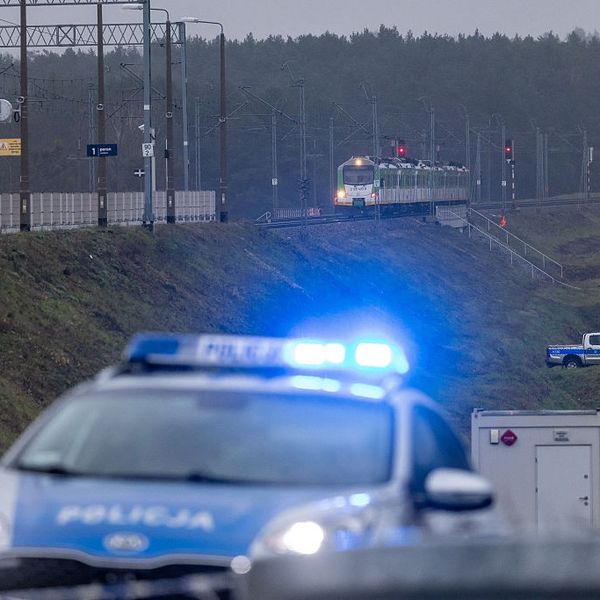Tensions between Russia and NATO have escalated to near Cold War levels since Vladimir Putin's seizure of Crimea and ongoing support of separatists in the Ukraine. The U.S. and its allies have imposed stiff sanctions, and NATO plans to deploy four combat battalions to front line countries bordering Russia. In response, Putin and his military leaders have deployed troops to Russia's western border and engaged in saber-rattling rhetoric, advocating the use of tactical nuclear weapons as a deterrent. The former NATO deputy commander, retired British General Alexander Shirreff, has predicted that an inevitable war between Russia and NATO will start next year, with Putin's invasion of the Baltics.
A war against NATO might turn out to be a bit counterproductive for Putin since Russia could end up destroying its own property. Before Western sanctions and plunging energy prices battered the Russian economy, the Putin regime and his oligarch cronies were flush with cash and went on a buying spree in Europe, quietly gobbling up as much energy infrastructure of NATO members as possible.
The acquisitions were an integral part of the regime’s geopolitical strategy for Europe, which aims to ensure European energy dependence on Russia by controlling transit routes and gaining stakes in the continent's infrastructure. Europe relies on Russia for 30 percent of its natural gas but is attempting to diversify its energy sources. Diversification became even more of a struggle after the Putin regime assumed majority ownership of a key transit route for energy supplies through the Nord Stream pipeline, which is 51 percent owned by Gazprom, Russia's state energy conglomerate. Besides the pipeline, Russia has also pursued outright ownership or joint ventures in infrastructure throughout the continent to integrate more fully into Europe’s energy network.
As an example, Gazprom has concluded and is aggressively seeking more deals which would guarantee majority shares in gas-fired power plants in Europe. According to some estimates, gas-fired power plants will increase in coming years as older fossil fuel plants have to be replaced and coal-fired plants come under more criticism for spreading pollution. Russia will be well positioned to take advantage of this increase. The deals stipulate that Gazprom will be the exclusive gas supplier, thus countering European attempts to reduce its reliance on Russian energy. Gazprom has already signed an agreement with Electricité de France and also owns half of Wingas, Germany’s largest wholesale gas company. Gazprom was on the verge of sole ownership of Wingas, but the bid ultimately fell through because of political concern over a Russian state-owned company controlling German storage tanks.
Russia also exploited the Eurozone crisis a few years ago to buy economically strapped European refineries for bargain prices. Russia lacks the capacity to refine the vast amount of oil it produces and has been reconfiguring its European acquisitions to refine the country's crude. As an example, Lukoil, Russia’s largest private oil company, has invested heavily in refineries and retail marketing networks throughout Europe. Lukoil owns significant stakes in refineries in four NATO member states: Bulgaria, Italy, the Netherlands, and Romania. The company’s gas stations dot the entire landscape of the continent, and it’s planning to buy 250 more in the Benelux countries.
In 2011, Rosneft, the largest oil and gas trading company in the world and primarily state owned, acquired a 50 percent stake in Ruhr Oel, British Petroleum's German refining joint venture. Under a restructuring arrangement this year, Rosneft increased its shares in three German refineries.
Two years ago, the European Commission expressed alarm about the impact of Russia's acquisitions in the continent's energy security, but all the projects have continued apace.
Energy is integral to the security of Russia and NATO and as such, will remain a key factor not only in the economic but also in the political and military policies of both. Russian oil and gas supplies, pipelines to deliver them, and ownership stakes in key infrastructure all strengthen the Putin regime's control and influence over European energy.
However, Russia's strategy to maintain its predominance as Europe's main supplier is a double-edged sword. While falling global demand and reduced energy prices have exacted a toll on the Russian economy, over 60 percent of Russia's export revenues still derive from energy sales, and the most significant portion comes from the European market. Besides, both Russian state owned and private companies have invested millions in purchasing, upgrading, and operating their European energy infrastructure acquisitions. Russia is just as dependent on Europe's energy market as Europe is on Russian energy supplies. Moreover, European dependence could be jeopardized if the continent increasingly moves to other suppliers or energy sources like renewables.
Given this interdependence, Russian sabers will surely continue to rattle against NATO, but steel won't strike steel. Mutual interest should preclude any armed conflict between two powers who, like prisoners chained together, can't survive without each other.












